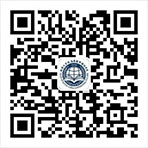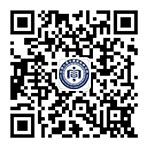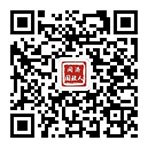
Jointly hosted by the Institute for China & World Studies and the School of Political Science & International Relations (SPSIR) of Tongji University and the Korea Foundation (KF), the international webinar on “China-ROK Cooperation after the Pandemic” was successfully held on July 5, 2020. A total of more than 30 teachers and students participated in this virtual meeting.

Associate Dean Zhong Zhenming moderated the opening ceremony, where Professor Lee Hee-ok, Director of Sungkyun Institute of China Studies, and Tongji Distinguished Professor Men Honghua, President of the Institute for China & World Studies and Dean of SPSIR, delivered speeches.
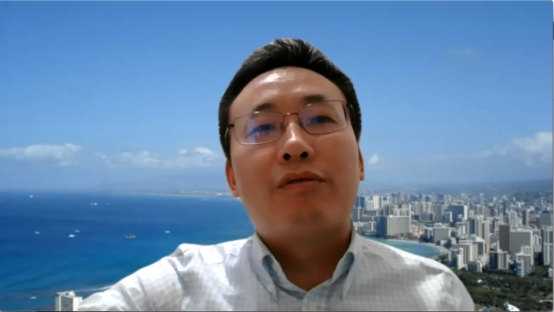
On behalf of the participants from South Korea, Prof. Lee expressed congratulations and gratitude to Tongji University and pointed out that this webinar has provided a new platform for academic exchanges between China and South Korea. Thanks to this webinar, the academic exchanges between SPSIR and the universities and research institutes in South Korea will reach a new level, he believed.
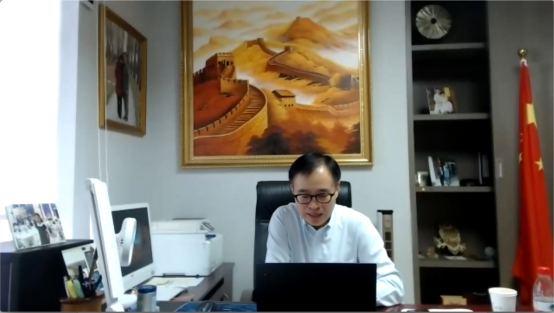
On behalf of the Institute for China & World Studies and the School of Political Science & International Relations of Tongji University, Dean Men expressed welcome and gratitude to the experts attending the webinar. He pointed out in his speech that when the outbreak of Covid-19 has posed a great challenge to the world, we are deeply aware of the tremendous changes that are taking place in the international community. Economic globalization is facing attacks and the strategic concepts and deployment of countries are changing drastically. The pandemic can be conquered, but the impact will be far-reaching. In this context, China and South Korea, as highly interdependent friendly neighbors with strategic partnership, should consider how to play a more active role in the region and beyond, and how to work together to increase mutual trust. This webinar provides a great opportunity to discuss the issues on security, economy and people-to-people exchanges between the two countries. The pandemic is hard hitting the international system and landscape, which has created huge space and many development opportunities for China-ROK cooperation in the post-pandemic era.
This webinar is design to further think and study on regional cooperation across East Asia after the pandemic on the basis of China-ROK cooperation. It focused on the following three topics: first, the situation in Northeast Asia and China-ROK diplomatic and security relations; second, the status assessment and future prospects of China-ROK economic cooperation; and third, the path to deepen China-ROK people-to-people exchanges. Former senior diplomats and famous experts and scholars from universities and research institutions in China and South Korea attended and spoke at the webinar.
At the closing ceremony, Dean Men first invited ambassadors Chung Sang-ki and Ning Fukui to make concluding remarks. Chung expressed his gratitude to all the experts and scholars for their wonderful speeches. He hoped that China and Korean experts and scholars would continue to expand and promote people-to-people exchanges through academic interaction, tell good stories about China and South Korea, actively promote cooperation between the two countries. Ning spoke highly of the positivity and necessity of this webinar. He said that this webinar has fully discussed the new dynamics in China-ROK relations, the international situation and the Korean Peninsula issues, which has delivered satisfactory results. With regard to the China-ROK relations, experts and scholars have not only recognized the positive outcomes so far, but also discussed the existing or potential problems and proposed some ideas to solve them. Ning expected that scholars and think tanks from China and South Korea would continue to strengthen exchanges and build consensus in academic exchanges. China and South Korea should pursue closer ties in the post-pandemic era, going hand in hand in economic, trade, political, security, and cultural fields. Finally, Ning expressed congratulations and gratitude to our school, and extended a sincere invitation to Korean scholars for the next academic event.
Dean Men concluded that the webinar has a high-end tone, pragmatic content, and forward-looking and constructive judgments on many issues. The guests have discussed issues on security dilemma, economic competition and humanistic perception gap, and put forward many constructive proposals, keen judgments and creative viewpoints, especially a bright prospect for the future. Such academic discussion can help deepen the understanding of China-ROK relations and provide many inspirations for further exchanges. In the end, Dean Men thanked the guests again and looked forward to more real-world communication in the near future.




